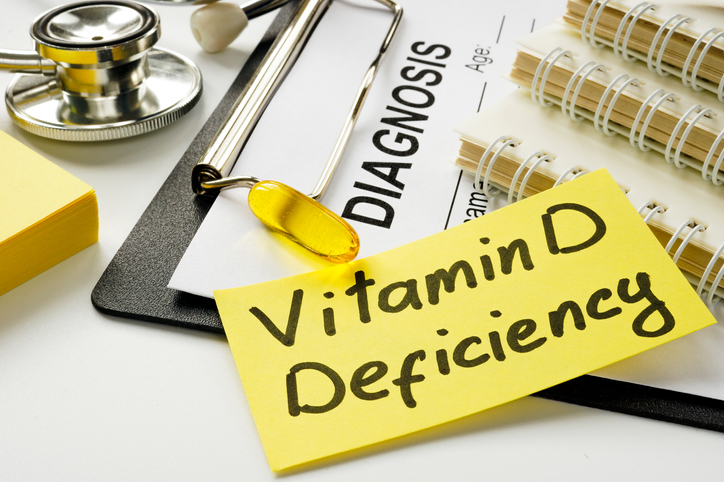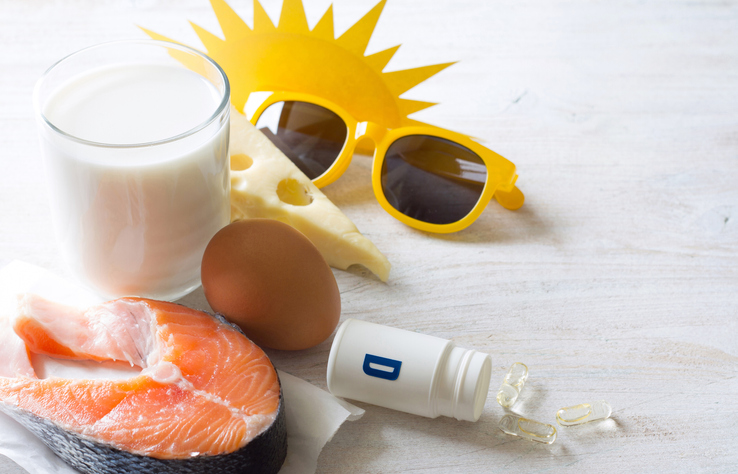Study Shows Vitamin D Deficiency May Increase Risk For Premature Death

By Joy Stephenson-Laws, JD, Founder
Several years ago actress Gwyneth Paltrow shared that she had a severe vitamin D deficiency.
"My doctors tested my vitamin D levels which turned out to be the lowest thing they had never seen -- not a good thing," Paltrow said, according to this Food Matters article from 2010.
On top of this, she had osteopenia (low bone density). Vitamin D is essential for bone health. This nutrient helps the body absorb calcium (a mineral, which you probably already know, is invaluable to the health of our bones).
I don’t know exactly how old Paltrow was at the time of her diagnosis, but it appears she could not have been more than 38-years-old. She is currently 50-years-old, and this article came out 12 years ago. Paltrow is also known for being beautiful, fit and the owner of Goop (a health and wellness brand). She is probably one of the last people one would think has thinning bones and a severe vitamin deficiency. It just goes to show you, this is a very common issue and can happen to any of us. According to the Food Matters report, Paltrow was prescribed a high dose vitamin D supplement and was encouraged to spend more time in the sun.
Also known as the “sunshine vitamin” (because we get it from the sun’s ultraviolet rays), vitamin D is one of those nutrients that is crucial for maintaining our overall health. Along with helping build and maintain strong bones, vitamin D may balance insulin levels and help with the management of diabetes, support lung function and cardiovascular health and even influence the expression of genes involved in cancer development.
Vitamin D is most definitely something we do not want to be deficient in, however, several reports say that more than 40 percent of Americans are vitamin D deficient. Furthermore, a recent study involving more than 300,000 adults in the United Kingdom found evidence which suggested that a vitamin D deficiency is associated with an increased risk of premature death. This appeared to be more true in the subject who had a severe deficiency.
“Over a 14-year follow up period, the authors found that the risk for death decreased significantly with increased vitamin D concentrations, and the strongest effects were seen for persons in the severe deficiency range,” according to this Medical Xpress report that discusses the study.
To me, it is entirely logical that a vitamin D deficiency (especially a severe one) would increase one’s risk of an earlier death. As mentioned earlier, vitamin D has been found to help prevent and manage many chronic conditions that can lead to death. Heart disease is the leading cause of death among American men and women, and vitamin D is believed to help with cardiovascular health.
I also really want to stress the importance of bone health. Our bones naturally get weaker with age, but this is not something that we should just accept in totality as a natural part of aging. There is a lot you can do to help maintain as much of your bone health as possible. Along with doing regular strength training exercises, making sure you are not nutrient deficient is important. Bone health is more connected to premature death than you might realize, but look at it this way - weaker bones means an increased risk of falling and falls are the leading cause of injury-related death in people 65 years of age and older, according to the Centers for Disease Control and Prevention (CDC).

You have to test, and you have to test regularly. Undergoing routine comprehensive nutrient tests should be a regular part of your healthcare. You could have a deficiency but not show any symptoms until the deficiency finally takes a toll on your body. If the test determines you are not nutritionally balanced, your doctor or a competent healthcare professional can assist with helping you make the necessary dietary changes and recommend quality supplements.
I highly advise not supplementing on your own without any competent medical guidance. Although vitamin D supplements and other nutrient supplements are available online and at our local stores, these supplements are not always the best quality and you will not know how much is the appropriate amount to take if you do not get tested and speak to someone who is qualified to guide you. It is possible to overdose on supplements. Check out this story about a man who overdosed on a vitamin D supplement. Also check out this pH labs blog about a man who lost 28 pounds from vitamin D intoxication.
As mentioned, vitamin D is the “sunshine vitamin” so spending time in the sun is necessary. Exposure to sunlight is also key for the prevention of seasonal affective disorder (SAD). Gwyneth Paltrow mentioned that she was shocked when she was told that she should spend more time in the sun. She had always been taught that the sun’s rays were harmful and that she could get skin cancer. The good news is that you can get your daily sunlight dose and be safe if you take the necessary precautions.
Few foods naturally contain vitamin D, but the flesh of fatty fish (trout, salmon, tuna, and mackerel) and fish liver oils are “among the best sources,” according to the National Institute of Health’s Office of Dietary Supplements. Beef liver, egg yolks, and cheese also have small amounts of vitamin D, and mushrooms have “variable amounts” of vitamin D. You can also find milk and orange juice that is fortified with vitamin D, but sunlight and supplements seem to be the most invaluable tools in preventing a vitamin D deficiency.
Keep in mind that if you have darker skin, you are at an increased risk of having a vitamin D deficiency. People with darker skin have more melanin (which is essentially pigment) and provides more of a barrier from absorbing sunlight and being able to make vitamin D (compared to lighter skin).
If you live in a colder climate and do not get outside often during the fall and winter months, it is extremely important to talk to your doctor about vitamin D supplementation. You might also want to consider bright light therapy in order to avoid seasonal depression.
Although vitamin D is not a mineral, the importance of addressing all nutrient deficiencies is exactly why I wrote Minerals - The Forgotten Nutrient: Your Secret Weapon for Getting and Staying Healthy. Nutritional deficiencies are so common, and we want to avoid them in order to live our happier, healthiest and longest lives.
Enjoy your healthy life!
Disclaimer: This article is not intended to provide medical advice. Please consult with your doctor or another competent healthcare practitioner to get specific medical advice for your situation.
The pH professional health care team includes recognized experts from a variety of health care and related disciplines, including physicians, attorneys, nutritionists, nurses, and certified fitness instructors. This team also includes the members of the pH Medical Advisory Board, which constantly monitors all pH programs, products, and services. To learn more about the pH Medical Advisory Board, click here.







